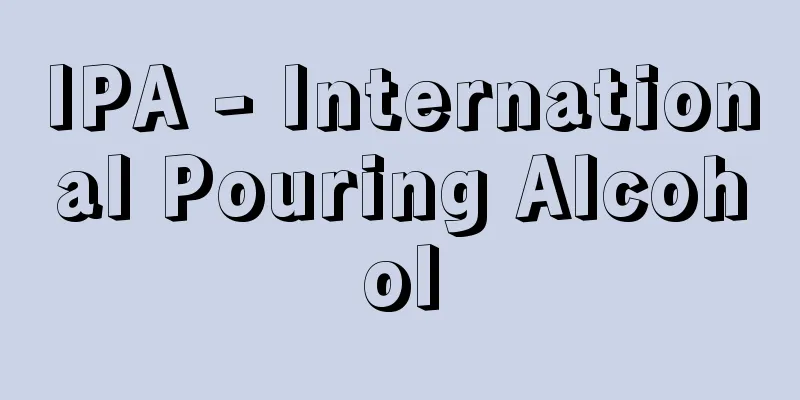Zionism - Shionizumu (English spelling) Zionism
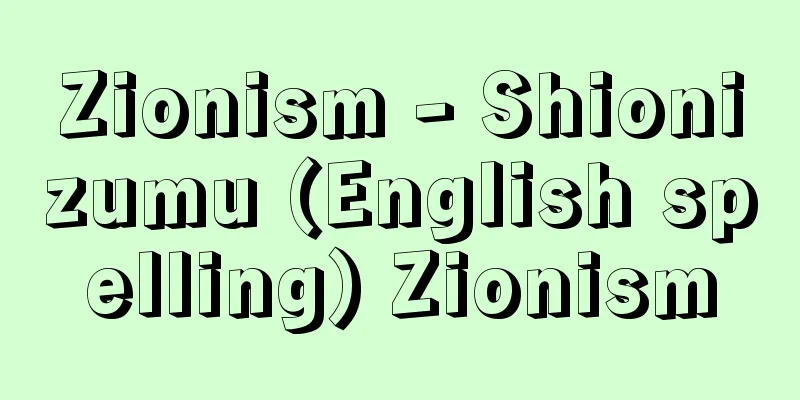
|
An ideology and movement aimed at establishing a Jewish state that began in Europe at the end of the 19th century. Zion is the name of a hill located southeast of the holy city of Jerusalem. The Old Testament describes the history of the Jewish people's expulsion from the land and their dispersion, and the "Land of Zion" in this passage had a symbolic meaning for European Jews who had suffered religious persecution, as well as a desire for liberation. In the second half of the 19th century, amid the storm of Jewish persecution (pogroms) that grew in Imperial Russia, Zionism was born, which superimposed the religious symbolism of the Land of Zion on the concept of a real territory, a "Jewish" state. The effort to realize a Jewish national state was realized in 1897 at the First World Zionist Congress in Basel, Switzerland, which was prepared by Hungarian Theodor Herzl (1860-1904). The conference resolved to "establish a homeland (state) recognized by public law for the Jewish people in Palestine." In 1917 during World War I, Zionism obtained a guarantee from Britain for the establishment of a Jewish homeland in Palestine (the Balfour Declaration), and promoted Jewish settlement after Palestine came under British Mandate in 1920. In the 1930s, the Nazism's genocide of the Jews spurred on settlement, while in Palestine itself, Zionist organizations pushed ahead with the confiscation of land and denial of employment opportunities to non-Jewish Arab residents, and the conflict between Zionist forces and the Arabs intensified to the point of destabilizing the British Mandate. In the 1940s, Zionism, relying on the support of the United States, tried to make international groundwork for the recognition of a Jewish state, and in 1947, it obtained the UN Partition Resolution for Palestine, which granted sovereignty to both Jews and Palestinians after the end of the British Mandate. On May 15, 1948, the day after the end of the British Mandate, the State of Israel was established, and Zionism achieved its goal. Prior to the establishment of the state, Zionist militant groups carried out terrorism and massacres against Arab residents, driving them to flee, and annexed the "depopulated" Arab villages, plotting the expansion of the Jewish state. Such plots were the natural outcome of Zionism, which is a religious, exclusive nationalism that does not tolerate anyone other than Jews. Zionism continues to be the pillar of Israel's national ideology even after the establishment of the state. This is typical of movements such as the Zionist Revisionists (later Likud), which were driven by religious fervor to "restore the Land of Israel (Eretz Yisrael)" and sought to satisfy their desire for unlimited territorial expansion through military force. [Susumu Fujita] "Document Contemporary History 13: Arab Liberation" edited by Yuzo Itagaki (1974, Heibonsha) [References] | |Source: Shogakukan Encyclopedia Nipponica About Encyclopedia Nipponica Information | Legend |
|
19世紀末、ヨーロッパで始まったユダヤ人国家建設を目ざす思想および運動。シオンは聖地エルサレム南東にある丘の名。ユダヤ人がその地を追放されて離散の歴史をたどるという『旧約聖書』の記述中の「シオンの地」は、宗教的迫害を味わってきたヨーロッパのユダヤ教徒にとって解放への希求とあわさって象徴的意味をもっていた。19世紀後半、帝政ロシアを中心に高まってきたユダヤ教徒迫害(ポグロム)の嵐(あらし)のなかで、シオンの地という宗教的象徴性に「ユダヤ人」国家という現実的領土の概念を重ね合わせるシオニズムが誕生した。ユダヤ民族国家実現への取り組みは1897年、ハンガリー出身のテオドール・ヘルツルTheodor Herzl(1860―1904)によって準備された、スイスのバーゼルにおける第1回世界シオニスト会議で具体化した。同会議は、「ユダヤ民族のためにパレスチナに公法で認められた郷土(国家)を建設する」ことを決議した。第一次世界大戦中の1917年、パレスチナにおけるユダヤ人の郷土建設に対する保障(バルフォア宣言)をイギリスから引き出したシオニズムは、パレスチナがイギリス委任統治領となる1920年以降、ユダヤ人入植を推進した。30年代、ナチズムのユダヤ人虐殺は入植に拍車をかけ、一方、現地パレスチナでは、シオニスト機関によって、非ユダヤ教徒アラブ住民に対する土地没収や労働機会の締め出しが推し進められ、シオニズム勢力とアラブとの対立はイギリス委任統治を動揺させるほど激化した。 1940年代に入りシオニズムは、アメリカの支援をよりどころに、ユダヤ人国家承認に向けて国際的根回しを図り、47年、イギリス委任統治終了後のパレスチナにユダヤ人、パレスチナ人双方に主権を与えるという国連パレスチナ分割決議を手にした。48年5月15日、イギリス委任統治終了の翌日にイスラエル国家が樹立され、シオニズムは目的を達成した。建国に先だち、シオニズム武装組織はアラブ住民に対するテロ・虐殺を行って人々を逃亡へと駆り立て、「無人化」したアラブ村落を併合し、ユダヤ人国家の膨張を企てた。そうした企ては、ユダヤ教徒以外を容認しない宗教的排他的民族主義であるシオニズムの当然の帰結であった。シオニズムはイスラエル建国後も国家イデオロギーの支柱であり続ける。それは、シオニスト改訂派(後のリクード)のような、「イスラエルの地(エレツ・イスラエル)回復」という宗教的熱狂に駆り立てられ、武力によって際限なく領土拡張意欲を満たそうとする運動潮流において典型的である。 [藤田 進] 『板垣雄三編『ドキュメント現代史13 アラブの解放』(1974・平凡社)』 [参照項目] | |出典 小学館 日本大百科全書(ニッポニカ)日本大百科全書(ニッポニカ)について 情報 | 凡例 |
Recommend
Ashiki - Roboku
〘 noun 〙 A group of ferns. They lived from the Dev...
Hellman, Lillian
Born: June 20, 1905, New Orleans [Died] June 30, 1...
Crested pigeon - Crested pigeon
...all are arboreal birds that feed mainly on fru...
Auer, Leopold
Born: June 7, 1845, Besprem [Died] July 15, 1930, ...
glossematics
…Professor of comparative linguistics at the Univ...
Sundiata (English spelling)
The legendary founder of the Mali Empire, which fl...
manual art
…It generally refers to the production of decorat...
Hall, ET
…There are many variations in the perception of d...
Rhenania phosphate
...There are three established industrial manufac...
Terawaki Shell Mound
This open-ocean shell mound is located in Kominato...
Emma wheat - Emma wheat
…There are about seven cultivated species of duru...
Ship automation - Senpakujidoka (English name) Automatic ship operation
The automation of ship operation. Since the invent...
Gastrallus immarginatus (English spelling)
…It is light reddish brown in color. The full-hor...
Chosenia arbutifolia (Cosmetic willow)
A deciduous tall tree of the Salicaceae family. In...
Cephalocaridae
…General term for crustaceans belonging to the Ce...



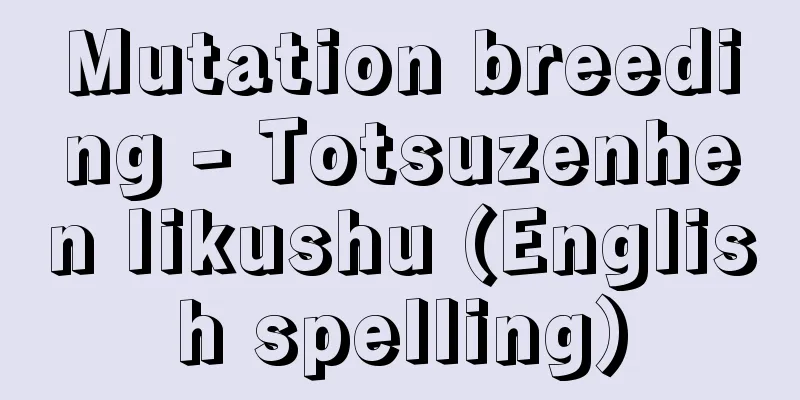
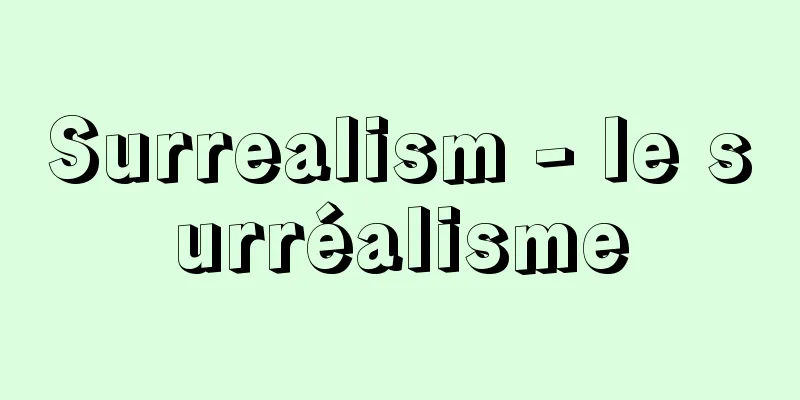
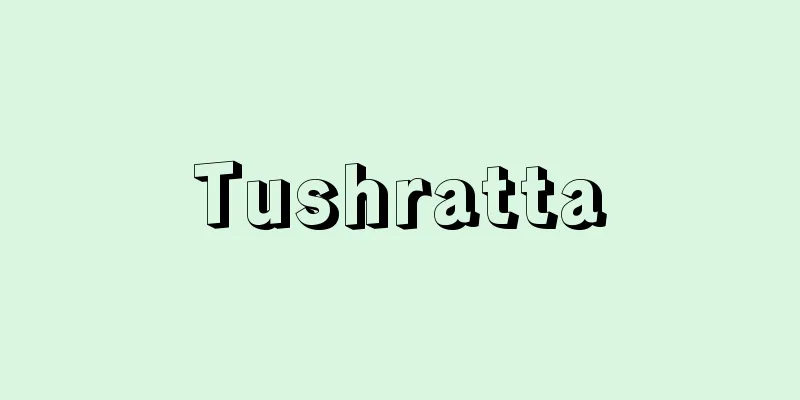


![Kitahata [village] - Kitahata](/upload/images/67cb5372c889b.webp)
